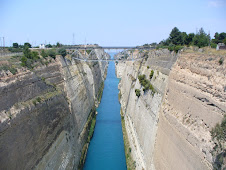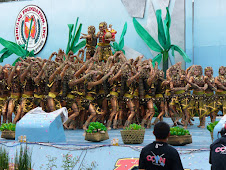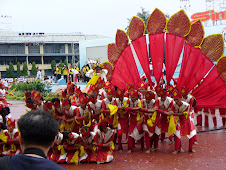
First timers in any city are always in for big surprises.
I have always wanted to be in Cagayan de Oro city ever since I learned – of all places, in Vancouver, BC, Canada, ten years ago that the Philippines, through GenSan and CDO was actually, then, the world’s top exporter of tuna.
My friends were then taking me for a stroll through the port area of Vancouver and we happened to pass by the fish market. As we were approaching one of the stalls, a tall, white and lanky Canadian man, suddenly called out to us in perfect and very polite Tagalog, “Ano ho ang hanap nila?” I was stunned. After the initial shock, I engaged the man in conversation and asked him how come he spoke so good Tagalog. “Matagal ako tumira sa Batangas at saka sa Mindoro,” was his answer. But that was not the best surprise. As we made known our desire to buy some “sock-eye salmon” for me to bring home to California, he quipped: “I bet you didn’t know that the Philippines is the number one exporter of tuna in the world!”
Indeed, I didn’t know … just as I didn’t know – up till now – that Boracay’s beaches are actually better, if not, on the same footing, as the best that Bali in Indonesia, and Pattaya in Thailand, could offer, at least if we are talking about their natural, pristine state. Once, when my siblings treated me to a cruise from Los Angeles to Encinada, Mexico, I bumped into a group of Caucasians who have been to Boracay. The conversation veered towards the topic on beaches. One of the men asked me point blank: “Have you been to Boracay?” “No, I haven’t unfortunately,” I answered. And then he asked me, “Then what are you doing here in Encinada?”
There was hardly anything worth anyone’s while in Encinada. It was pathetic, just as it was pathetic to see Caucasian tourists back in Monterey in California, to wax so enthusiastic and appear so surprised to ogle at nothing but the gently rolling surf where enterprising marketing experts have put up a sign that said: “The Restless Sea.” Dozens of them were having their picture taken alongside the sign. Coming as I do, from a country surrounded by sea everywhere, I could not understand how so many people could be so enamored by the sight of something so ordinary as the rolling surf glinting in the morning sun by the seashore.
I write as I await my flight back to Manila at Lumbia National Airport. The airport itself is nondescript, a little too small for a city that prides itself now as the gateway to Mindanao. But the location of the airport itself is welcome sight to travelers. Nestled on a plateau surrounded by undulating hillocks, covered with bright green and lush foliage all around, it clearly reminded me of how blessed the place and the people who live there are with relatively rich vegetation all around. I was told that the only setback to the airport sitting on hills was the fact that on foggy days, flights have to be diverted to Cebu a little further north. I thought the airport itself was just a little better and bigger than the one in Ozamis City, Misamis Occidental.
My five day stay in CDO was a welcome respite from the monotony of first semester classes, teaching, preaching, and celebrating Masses daily for others. A national seminar-workshop of counselors under the auspices of the Philippine Guidance Counseling Association, Inc. was what brought me there. When I came, it was surprising to note that the whole city was abuzz with visitors as several national events were being held there. All the hotels were booked solid and all the humble “motorelas” (what is known in the north as tricycles) appeared poised and ready for the influx of riders.
The first day saw almost 800 of us cramped in the biggest ballroom of Grand Caprice Hotel, attached to LKK (Lim Ket Kai Mall). The 2nd and 3rd days saw us, still cramped and uncomfortable, in various rooms of Capitol University, a privately owned university that appeared to be the closest competitor to the other Jesuit owned school, Xavier University.
The whole short stint that made me see nothing more than hotel, school, audio-visual rooms and listen to speakers, was, honestly, an enlightening experience. It was good to see a city with a lot of gold, albeit devoid of glitter usually associated with it. I saw it in the mostly courteous and honest taxi drivers I happened to associate with. Although not all were such, my experience with two of them, who were both locals, was enough to write off what appeared to me as less than honest dealing shown by one who happened to be from the Tagalog region up north.
I saw gold, too, in the relatively better preserved greenery in the city. I saw gold in the smart, courteous, and unassuming service provided by hotel staff and orderlies who dutifully made the rounds of the rooms. Whilst the room I had was not the best in terms of comfort as compared to what one finds in the US, for example, or even in other wealthier Asian neighbors, I could not have asked for more in what simple things they could offer. I saw gold too, as I strolled leisurely at the Divisoria area in what they call the “night café.” There was music. There was mirth. And there was gentle soothing massage over at the park from blind women and men, who were there, each night, providing a cheap way to instant relaxation and stress-relief with their agile hands and fingers.
They say travel makes for a good teacher. One learns a whole lot more in shorter a time, than one can learn poring through books and sitting through lectures. This trip to CDO was no exception, as was my trip a few months ago to Pagadian City, also in Northern Mindanao.
The world we live in is caught, for the most part, in a culture of having rather than being. If the mad rush for skin whitening lotions and concoctions is a sign of anything, I believe it has to do with that passionate search, for form, and not necessarily for substance., for appearances, and not for the essential invisible realities that matter the most in the long run.
We see manifestations of such everyday … from the bombastic grandstanding antics of the “trapos” (traditional politicians) whose tribes seem to increase by the day, to the mostly and primarily cosmetic changes that seem to characterize all the projects associated with that much hated pork barrel funds of the so-called honorable congressmen and senators.
The list is legion. Time and again, the police engage in token busts and token arrests to show they do their work. Occasionally, one hears of arrests being made, of shabu factories being raided, and small-time criminals facing the long arm of the law. But one wonders why no big fish are ever apprehended, and why only small fry land in jail at all. And if high profile and big fish criminals land in jail, why, they get pardons and reviews faster than you can utter “I am sorry for what I did.” One high profile criminal even went through the charade of presidential pardon, but who never ever even accepted he was guilty of anything! How on earth does one pardon anyone who professes innocence?
Whilst it is true that not all that glitters is gold. All that glitters nevertheless can pass off as gold for many people, at least for a while. In a world where appearances seem to count the most, ingesting drugs that produce temporary and erstwhile self-esteem via the right and desired color and skin tone, takes primacy over the big possibility of harmful, and permanently debilitating health issues associated with such drugs. In one media report after another, we have been apprised of individuals who succumb even to death on account of their overweening desire to acquire that much coveted body form, and skin color and complexion. Gold is mistaken for the superficial glitter.
I have seen a lot of glitter in my numerous trips all across the United States and Europe, especially in cities like Las Vegas, Reno, Atlantic City, and New York. But one does not have to go too far to see gold, sans the glitter, sans the glamor. I saw it in many varied, simple, and humble ways at Cagayan de Oro, the city of golden friendship. And how I wish the same were true all over this country, whose image has been so torn and tarnished by so much shallow politicking, a whole lot of divisive political posturings of “trapos” who, while claiming to do public service, only have the glitter and the glamour that come from it primarily in mind.














